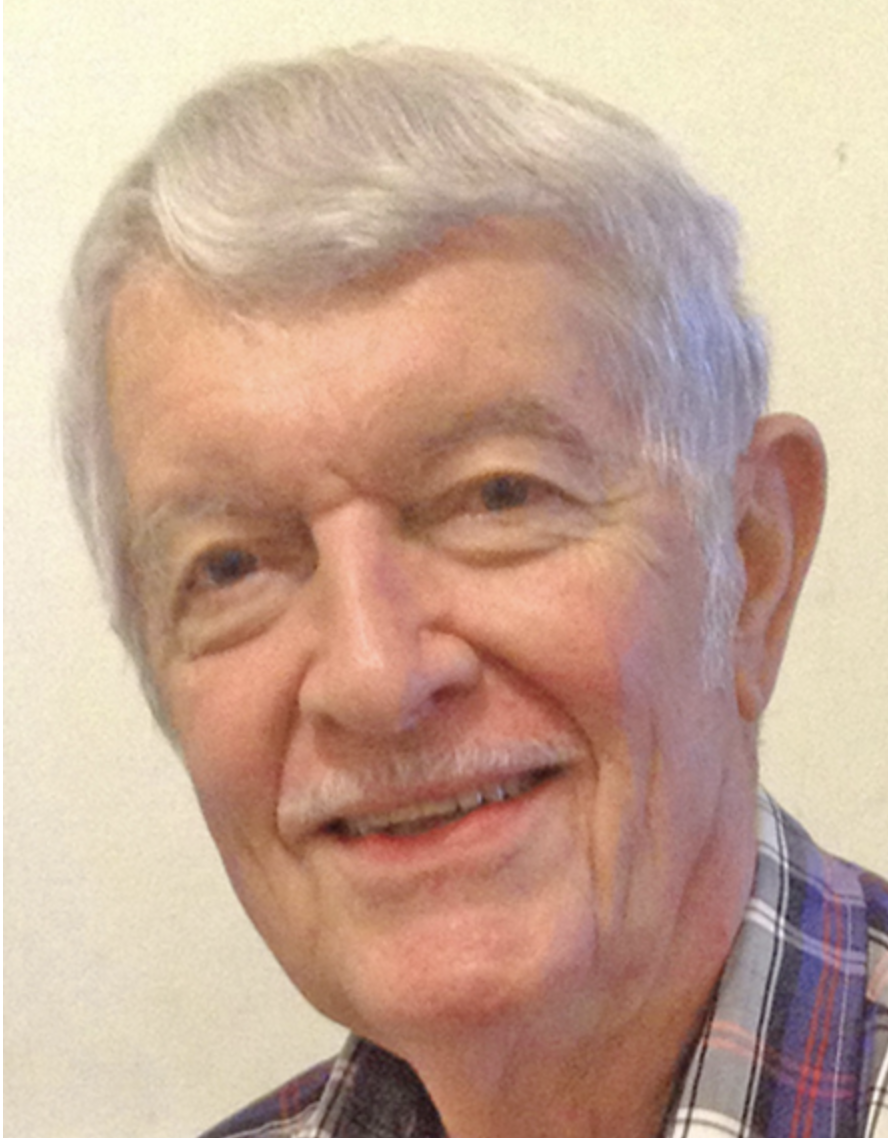Déjà vu
“Proprietary. As though we were his to command.”
That was how Astrid put it to her friend after dinner, when they were – at last – alone again.
“Well, he did ask,” Millie murmured.
“When he’d already pulled back a chair, and was half-seated. What a pompous ass! How long was he in Congress?”
“One term. He squeaked in with the first George Bush in 1988, and lost the seat two years later.”
“I’d say the nation is well-served by whoever beat him. Is that how you knew him? From his campaign?”
“No. From high school. And be fair, Astrid! He mostly just listened.”
●
Although Millie thought Astrid overdid it, her reaction was understandable. There they were in the Harmony Acres dining room, having asked the waitress to seat just the two of them, co-chairs of the committee planning the July Fourth celebration, and bang! there was Howard Appleton, asking if he could join them. He’d not only seated himself without waiting for a response, but peremptorily ordered the poor waitress to stop taking up a place setting, and lay it back down for him.
“Been a long time, Millie,” he’d said simply, then flashed a politician’s cheesy grin at Astrid, learned her name, asked what they were up to, and backed off politely. “I’ll just shut up and let you do your planning,” he’d said. “I’m impressed how many people here put effort into community projects.”
And as promised, he did mostly just listen – attentively – while she and Astrid talked, although he did ask a few questions. Astrid was determined to be annoyed, but his questions were helpful, things they hadn’t considered. Howie has always been smart, Millie thought. Then he excused himself and got up while they lingered over dessert. Apart from inviting himself to join them, he’d been polite and considerate, even if Astrid thought not.
Millie had known he was moving in. The Hospitality Committee put out a monthly newsletter that always had a paragraph each about newcomers. The Acres’ population was only 300 or so, so she knew that sooner or later she would encounter him.
And yes, she’d thought about him. Wondered if he’d mellowed; wondered if she’d mellowed; wondered if it wasn’t time to forgive. As she stretched memory back to an earlier time, long-forgotten snapshots popped into her mind: football games, dances, math tests, hand-holding walks in Riverside Park.
She hadn’t told Astrid, but they’d been high school sweethearts.
●
Not lovers. In those days, dutiful daughters took their mothers’ advice, and boys grudgingly accepted the conventional wisdom that sex was for married people. The two of them expected someday to marry – everyone in the school thought so – and meantime they stifled their raging hormones.
After bidding Astrid good night, Millie stood in front of the full-length mirror in her apartment bedroom. Not bad for 74, she thought: Never really stacked, and less so now, but still a trim figure. The Acres’ salon gal did a nice job keeping her gray hair bobbed, and her face had a lot fewer lines than most women her age.
She tried to remember what Howie had been wearing tonight, wishing she’d made a point of surveying him. Good head of grey hair, no moustache or beard, only a little sag to the jowls. Dress shirt – had it been striped? Yes, blue stripes – no tie, open at the throat. Still fairly slim, without the little potbelly that was so common here. Voice? Baritone, or maybe bass?
She took off her clothes in front of the mirror, letting everything drop one at a time to the floor, and then took a long shower, letting warm-almost-hot water sluice over her, cupping her depleted breasts in her hands, prompting her memory back the night he fumbled beneath her sweater. It had been aqua-blue cashmere; she could see it vividly in one of those revived-from-memory snapshots. He had reluctantly accepted her insistence that he not reach back to unhook her bra.
It hadn’t been only his hormones that raged, either; she had yearned for his touch. Nothing in her married life, not even the night of her wedding to Humphrey Peters, had been as heady as her last high school nights with Howard.
After graduation she went off to Mount Holyoke College, then and still today stubbornly for girls only, proudly promising “to prepare students to face the future with confidence,” while touting the accomplishments of alumnae who were “already making change in the world, in ways both big and small.” She loved the school, loved professors and classmates, became a top student, and was still a loyal, supportive alum.
And Howard? Full of patriotic bravado, he ignored the advice of parents, pastor, principal and most teachers, and enlisted in the Navy. They wrote each other almost daily during his training, and hoped to arrange a weekend in New York before he deployed to Vietnam. For unforeseen and now forgotten reasons that couldn’t happen after all, and he was soon writing her from the USS Enterprise as it bombed people called Viet Cong in a place called Bien Hoa.
More than a year went by before he shipped back to his Texas base, wangled a ride to Boston on a military transport, rented a car and drove to Holyoke. She had just begun a sophomore year full of promise, and had begun to think of law school. She saw herself a pioneer on the new horizons that were arising for American women. Apart from Howard, to whom she still managed to pen a few lines every night, there was no time in her busy life for boys or men.
But Howie? She could hardly wait to see him.
She supposed he had been cooped up in the all-male company of an aircraft carrier, not even a pilot but a deck officer, while she soared. If he’d ever had shore leave, he hadn’t mentioned it in his letters.
So it should perhaps not have been a surprise that their first and only date was a disaster. He took her to The Federal in Agawam, where his uniform won him respectful attention from the headwaiter and more free drinks than was wise. Back on campus, he insisted on a long walk into the Prospect Hill Forest. Dusk was falling; they were alone. He gallantly handed her down onto the first bench encountered, sat down beside her, and pulled her to him for a kiss.
A kiss was the least of what he wanted. Any hormones he might have stirred up in her quickly gave way to fear. His hands were all over her; she tried to fend him off politely, but realized he was very strong and was going to force himself on her. “Howard, STOP!” she finally shouted. She remembered to this day her very words: “There are other people out tonight, Howard Appleton, and if you don’t stop right now I will scream at the top of my lungs until someone comes!”
He’d stopped. She got up from the bench, suppressing the urge to run, and walked as hard as she could back to her dorm, Howard the whole way trying to keep up, to apologize. He pleaded for her to stop and listen to him, promising not to touch her, swearing his love. She ignored him until they got to her dorm. Then she turned at the threshold, said “Good night, Howard. Goodbye!” and slammed the door in his face.
She had her roommate answer the phone until he gave up trying to call and went back to the Navy. Apart from a long, saccharine letter he wrote from Texas – which she hadn’t answered – they had not exchanged a single word in all the intervening years, until he’d come to the table tonight.
●
Déjà vu all over again, she said aloud when she woke up the next morning, still trying to summon up a complete image of Howard Appleton. Fixated 45 years ago, and obsessing over the same boy now, if indeed he was anything like the same boy. The pre-Navy boy.
Have no illusions, she told herself: Nothing will come of this. There were a surprising number of couples at Harmony Acres, but the place was full of widows and widowers. She knew of only one late-in-life marriage by a pair who had lost their spouses.
Many of us have nursed a partner through a final illness, she mused; it took the kind of stamina one summoned up from the reserve of long decades together. Going through that again with a new partner of only a few years was not a prospect most would welcome. We’ve come to a life care community precisely so we won’t have to inflict ourselves on spouses or family to carry the major burden of nursing us through our final days.
On the other hand, having a steady date for dinners, or for the welter of games and activities The Acres offered, might make whatever years remained much more pleasant than growing old alone.
She hurried through breakfast – fresh raspberries over cornflakes with skimmed milk, her abstemious regular – and took a cup of coffee to sit down at the computer.
Millicent Peters had never paid to look anyone up on the internet, but she knew it was possible: You just Googled the name and town, and a half-dozen services with names like mylife.com or whitepages.com or yellowpages.com or zoominfo.com would offer to find out everything you wanted to know, for a fee that this morning seemed reasonable.
She searched for Howard Appleton, adding Congress to be sure she got the right one, and mentally flipped a coin to decide which of the look-em-up services to hire. Then she sipped coffee impatiently while the computer screen filled up with messages reporting where the damned thing was looking next. Amazing, the information at one’s fingertips in this day and age. Might be fun to look myself up, see what the world-wide web has dredged up from my long life, my years on the bench. No. Maybe later; Howard first. It’s taking forever.
At last! she got the report:
Gone out-of-state for his postponed college, then back to work for a downstate company that sent him around the world to sell its products. Married – she vaguely remembered a chic young woman at his side, little boy in tow, when he ran for Congress – and when his re-election bid failed, he moved to what must have been her hometown in the Midwest for a new job. Hmmm. Went back to college for a doctorate in geography, had a second career as a college professor. Widowed in 2008, coincidentally the same year her Humphrey died, the year Obama was elected. Moved back here to finish his career at a downstate college.
So: Like her, he’s been alone almost a decade and a half. May crave companionship. Will probably call.
Or not. Widows outnumber widowers two to one at all senior communities like this; men can pick and choose their companionship.
All right, then, she should make the gesture. Simply the fact that she calls him will make clear that she’s ready to move on, to put that horrible night in Holyoke behind her. Behind them.
Harmony Acres had everyone’s room and phone numbers online, including newcomers. She looked him up, wrote the number down on her notepad. It looked like a mobile phone number, certainly not our area code.
Well, girl, are you going to do this or not?
To the kitchen to get a fresh cup of coffee, then back to her desk. Do it, dammit!
She dialed.
“Hello? This is Howard Appleton.”
Baritone. Definitely baritone. “Howie, it’s Millie. Millie Peters. It was nice to see you at dinner last night.”
“I’m afraid I crashed the party.”
“No, not at all!”
“Well, your friend Astrid Havens obviously thought so.”
“Never mind her. I’m calling to suggest we have dinner tonight. Just the two of us. Say the 5:30 seating?”
“Oh, Millie, I’m sorry. I just made a date to have dinner with your pal Astrid. Thought I’d better try to smooth her feathers before she tells everyone in town I’m a rude, intrusive son-of-a-bitch, if you’ll excuse my French. To my surprise, she said okay.”
Damn! Do I have to compete with every widow in the place? She tried to compose herself. “Oh, I understand, Howie. You’re a natural-born fence mender. How about tomorrow night?”
“Oh, now I’m really sorry! I’m heading downstate in the morning for a couple of days. The house has finally sold, and now I have to clean it out. You must know the drill: Take clothes to Goodwill if they’re wearable; find a library that wants some of your books; take some stuff to the recycling center and some to the incinerator. Lord knows how long it will take! Howzabout I call you as soon as I get back?”
“Sure, Howie, you do that. And good luck with getting rid of stuff. I’ll look forward to your call. ‘Bye now.”
●
Her disappointment surprised her. Two days ago she’d hardly given a thought to Howard Appleton, let alone worrying about getting past a four-decade grudge. Make that four and a half decades. If that’s the time frame, what difference does a few days make?
She went back to the kitchen to wash the coffee cup and her breakfast dishes. Maybe Astrid would be as cutting tonight as she’d been last night after he left. Would she tell him she was glad he’d lost his re-election to Congress?
No, don’t be silly. More likely she’ll figure out that he’s a very likeable man. Turn on the charm. Invite him to help with the July Fourth thing. By the time he gets back next week, he could be tied up for weeks.
The telephone. Probably another blind-call solicitation for auto insurance or the like. A lot of those recently. It’s all the way back at my desk. Why bother?
No, don’t be a dope. Could be any of a dozen friends. Hurry, now; you’ve dawdled, and they may hang up.
“Hello? This is Millie Peters.”
“Millie? Howard here. Listen, I called Mrs. Havens and made an excuse to beg off. How about dinner tonight?”
Ahhh!
“That would be nice, Howie.”

Don Noel is retired from four decades’ prizewinning print and broadcast journalism. He took an MBA from Fairfield University at age 81, and in the decade since has since published more than six dozen short stories or other pieces.



